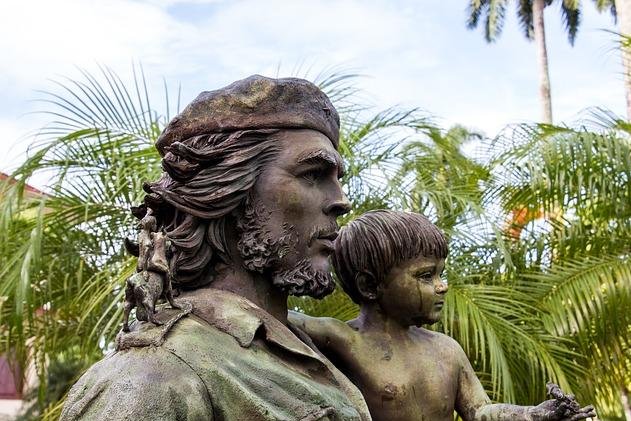A statue of Argentina-born Ernesto Guevara is seen in Santa Clara, Cuba. Guevara studied medicine at the University of Buenos Aires and worked as a doctor before he became a revolutionary. Photo by Edvard-Grieg/Pixabay
Nov. 16 (UPI) -- The Brazilian Health Ministry said Friday it's holding meetings with the Pan American Health Organization on the exodus of thousands Cuban doctors and finding replacements.
"By early next week we will complete work on a proposal to select professionals to cover 8,332 vacant posts to be left by Cuban doctors," the ministry said Friday.
The selection of Brazilian professionals "in a first call" will be made this month, and they will be required to reach municipal areas "immediately after selection," it added.
The announcement came hours after the first group of 196 Cuban doctors returned to Cuba on Thursday, said Granma, Cuba's official newspaper.
The group was scheduled to leave, as they'd completed their service in Brazil, but another group scheduled to replace them "will no longer be available," the newspaper reported.
The program started in 2013 as an agreement between Cuba, the Pan American Health Organization and Brazil, at the time led by former President Dilma Rousseff.
"The end of the program will be an irreparable loss in the short and medium term. Created during my government, the program offered until 2016 medical services to 63 million Brazilians, many of whom had never had access to a health professional," Rousseff said, according to a letter published on the Cuban website Cubadebate.
The Cuban doctors worked in the poorest neighborhoods of the largest Brazilian cities, as well as in remote Amazon regions mainly populated by indigenous populations. As many as 700 municipalities had never seen even one doctor, she added.
The Cuban government ended the program on Wednesday, as it said that plans by Brazilian President-elect Jair Bolsonaro to sign individual agreements with each doctor was not acceptable.
Rousseff said Bolsonaro's plan for individual payments were offensive, as they ignored the Cuban system, which compensates the doctors with a salary. She said it also ignored that the PanAmerican Health Organization guaranteed the qualification level of the personnel.
Cuba, which has free medical schools, sends doctors to several areas of the world in government-to-government agreements. The revenue, or goods, it receives in exchange are distributed to the budget that goes for the entire population.
Rousseff is from the left-oriented Workers Party that lost the October election to Bolsonaro, who will lead Brazil for the next four years. He won on a campaign marked by nationalist rhetoric and heavy criticism of left-oriented organizations.















